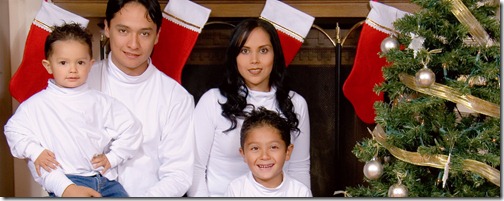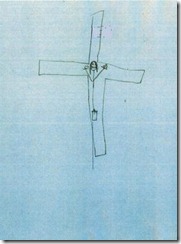
During the Middle Ages, as the Roman Empire was “Christianized” by Constantine and became the Holy Roman Empire, and as more people groups were conquered, the Popes of the day decided that it was easier to bring new peoples into the Christian religion by “Christianizing” holidays that people were already celebrating by attaching Christian events with them.
Christmas is one of those times.
From Pagan to Christian
The Pagans celebrate Winter Solstice around this time—the shortest day of the year. The druids uses evergreens to celebrate this period in winter. Many of the customs we celebrate around this time were adopted and adapted from these previous cultures.
When the pilgrims came to the new world, these people that were known for their piety (they did, after all, want to purify the Church of England), did not celebrate Christmas and thought it to be a pagan holiday.
However, it soon was accepted and celebrated, even though few Bible believing Christians believe that Jesus was born on December 25, that Mary and Joseph were walking on their journey from Nazareth to Bethlehem in the middle of the Israeli winter, and many believe that the wise men were not at the manager.
So, Why Celebrate It?
The Jewish and Christian traditions are filled with days of remembrance. It was well known that people that do not remember things tend to forget them. Christ instituted the Lord’s Table or Communion to remind people of the price paid for sins. At this time of the year, Christians remember the birth of Christ—not because it was the exact date, but because it’s the time that has been commonly recognized for a time of remembrance.
In that way, Christmas is a reminder to Christians that the Lord of all Creation stepped down from Heaven and humbled Himself to become one of us that He might save us from the sin that we found ourselves in.
Christmas, however, is only the beginning.
In the Shadow of a Manger, a Cross
The truth is that Christmas is just the beginning. In remembering that He came we remember the reason that He came. He didn’t just come to experience life, He was born to die.
 A second grader in Taunton was more correct than many give him credit in that when he was asked to draw a sketch something that reminded them of Christmas. Having just visited a Christmas display that must have reinforced this idea, the child showed that Christmas meant to this boy the sacrifice of Christ on the cross.
A second grader in Taunton was more correct than many give him credit in that when he was asked to draw a sketch something that reminded them of Christmas. Having just visited a Christmas display that must have reinforced this idea, the child showed that Christmas meant to this boy the sacrifice of Christ on the cross.
And truly, Jesus’ whole life was sacrifice—
- Sacrificing by coming down from Heaven.
- Sacrificing by being a carpenter rather than an earthly king.
- Sacrificing by not having a house, a roof, a family.
- Sacrificing by laying down His life for us.
The truth is that this time of year needs to mean more than the birth of a baby in a manger many years ago. It needs to mean more than who the baby was, the miraculous nature of His conception and the life which He would lead.
It needs to mean redemption, the beginning of a work that would save our souls, the promise that was made thousands of years before that was coming true.
That’s the reason for the season—not the Babe, but the sacrifice, and the good news that redemption and reconciliation with God is possible though the man Jesus and His finished work on the cross.